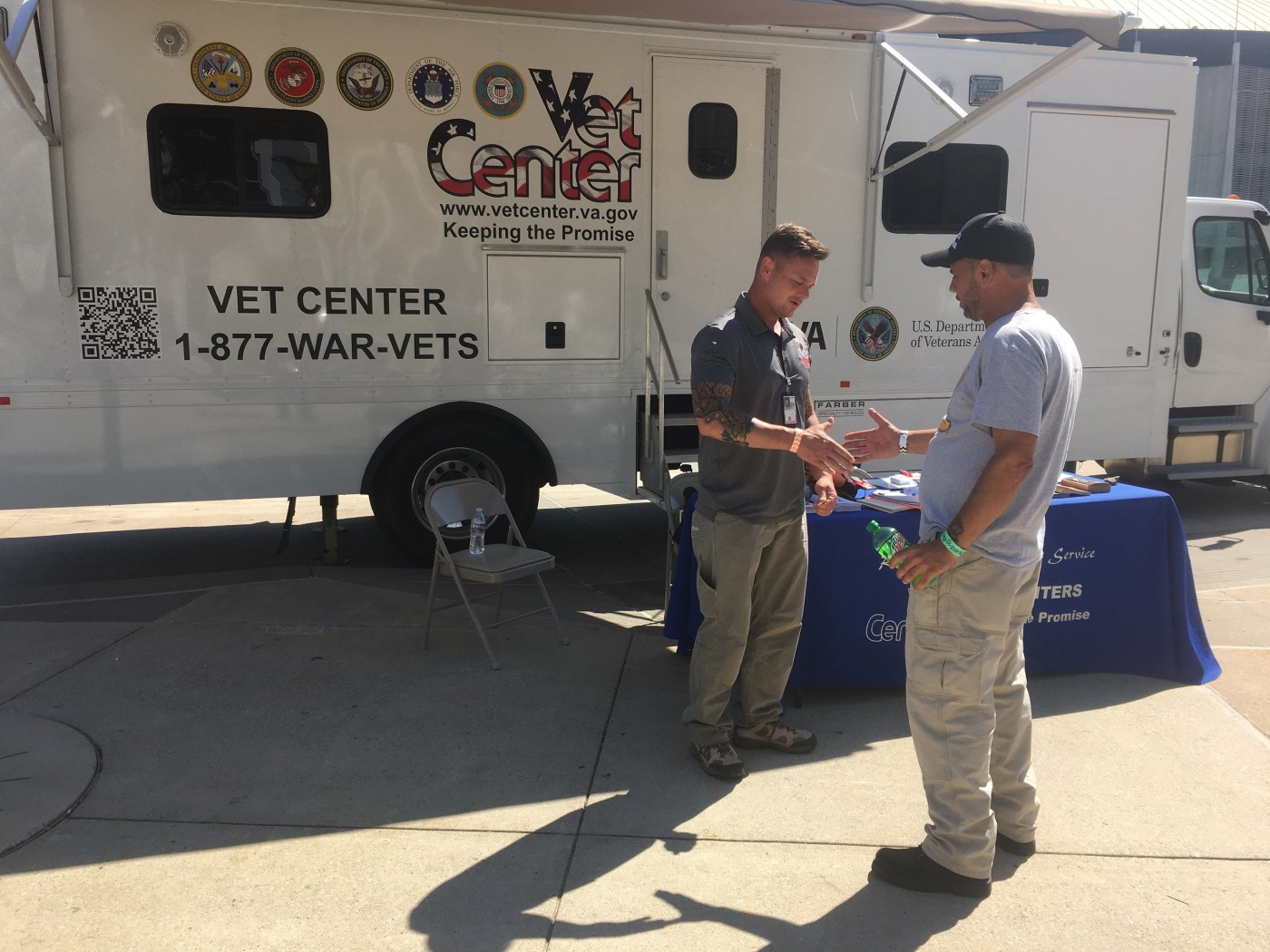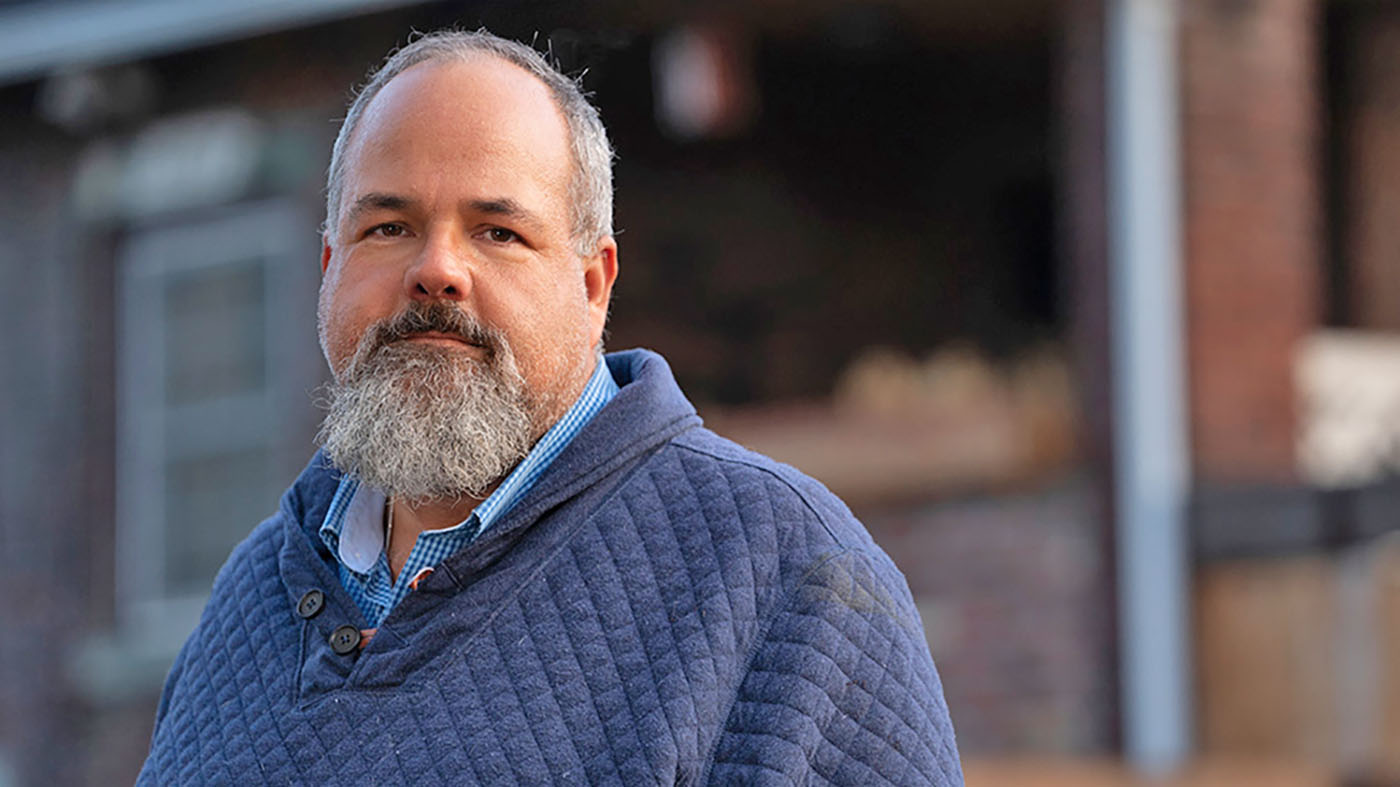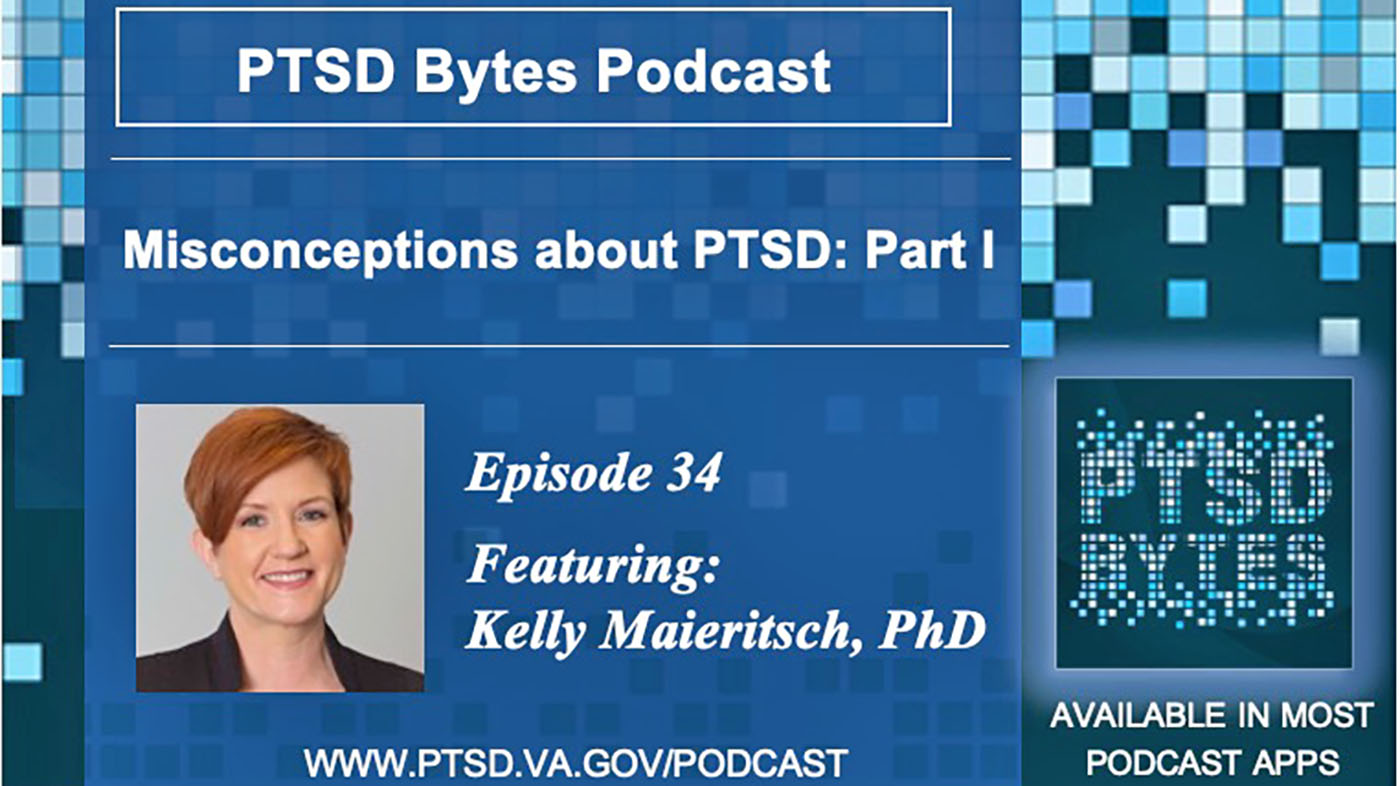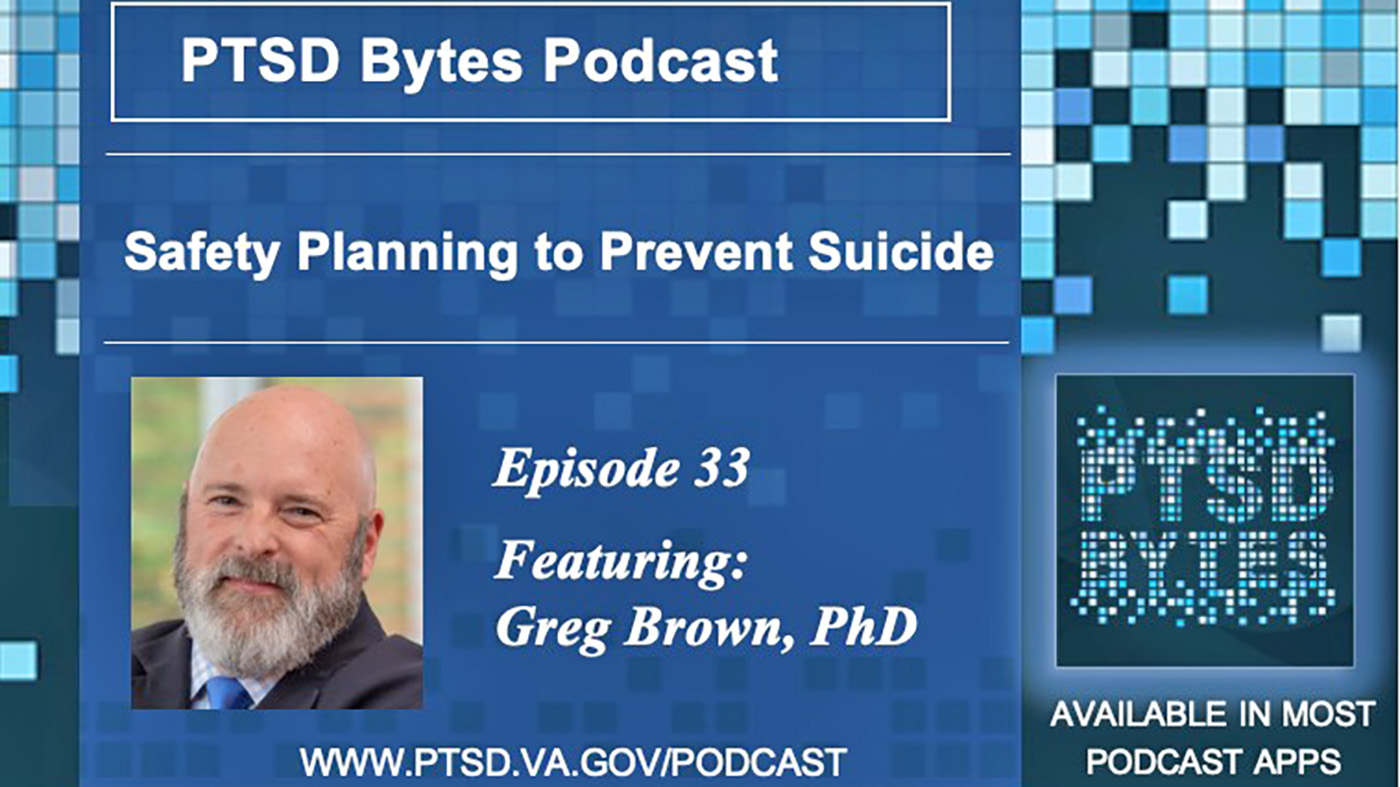VA’s VAntage Point blog has the latest information on hurricane impact to VA facilities and services. For those impacted by Hurricane Harvey, click here. For information on Hurricane Irma, click here. For the latest on VA’s response, read more here on VAntage Point.
Houstonians rebuilding their lives in the wake of Hurricane Harvey may have noticed Mobile Vet Centers throughout the city. Vet Centers throughout the U.S. have joined forces to meet the needs of Veterans and non-Veterans, as shelters continue to see a steady flow of disaster survivors seeking a safe haven.
The NRG Stadium is a popular location for large scale events, in Houston. Following the turmoil provided by Hurricane Harvey, the NRG has become a major shelter for displaced Houstonians and other Texans. At its peak, more than 6,000 residents have sought shelter at the NRG.
This location is where one of four Vet Centers has located since occupancy at the shelter began.
“Most of the people we’ve spoke to are non-Veterans,” said David Caldwell, readjustment counselor for the Vet Center in Houston. “They are confused, scared, they aren’t sure where to go. This disaster has caused mental health issues, and we have the staff who can help.”
VA’s Vet Center program is unique. Centers mostly work with combat Veterans, however Hurricane Harvey has resulted in the mobilization of Vet Centers to not only serve Veterans, but anyone in the community seeking their assistance.
According to Jason Cates, a licensed social worker and readjustment counselor who serves Veterans in Fayetteville, Arkansas, he feels compelled to serve and give back. He deployed from his Arkansas based Vet Center to support the people of Houston in this tragic condition.
“I have never had an opportunity to work in a situation like this,” said Cates. “We are reaching out to all Veterans, in addition to civilians. Trying to find anybody with needs, or need of mental health counseling, or support at some level.”
The Vet Center team has at least two social workers always on duty. They’ve been at the NRG for over a week, and plan to work through the weekends and holidays, as recovery continues.
“We have seen children, and notice sad looks in their eyes,” said Caldwell. “We show a friendly face, and ask what’s wrong? We chat and make them feel better; it is about the whole family in this situation.”
Pedro Esquivel is a driver for the Mobile Vet Center. He brought this mobile unit from his San Antonio. Over the past two months, he’s driven 3,000 miles. But this stop is different.
“I go all over south Texas, and it is great talking to Veterans and listening to their stories,” said Esquivel. “I don’t just drive, I talk to the Veterans, with the counselors.”
With a smile, Houston counselor David Caldwell recalls a moment where displaced families strolled over with a need for their family pet. “At first people were curious and didn’t really understand our role,” he stated. “We had several Harvey survivors bring over their pets. We do explain that we aren’t veterinarians, but we are Veterans. It makes for good discussion.”
“We have people here who have lost everything,” said Cates. “They’ve lost everything from their medication and home, to their transportation and clothing. We give them a place to vent. This is a crisis—stress is something we can help with.”
Mobile Vet Centers are, in many circumstances, the first mobile service out during a disaster or other crisis events. As an extended arm of the VA, they reach Veterans of all eras, providing critical information, mental health assistance, and camaraderie Veterans instantly connect with.
The mobile center located at the NRG has seen, on average, 40 Veterans and non-Veterans a day, experiencing a variety of needs. They provide a resource for everyone, and are available to talk, answer questions, or just listen.
About the author: Shannon Arledge is a public affairs specialist with the Veterans Health Administration.
Topics in this story
More Stories
Be ready before a suicide crisis by learning about resources that are available. You don’t have to face it alone.
In a two-part series, Dr. Colleen Becket-Davenport discusses some common myths surrounding PTSD with Dr. Kelly Maieritsch.
In this episode of the PTSD Bytes podcast, we speak with with Dr. Greg Brown, Philadelphia VA clinical psychologist, about how safety planning can prevent suicide.







John Peter Krones WW2 DAV
Lost everything in the Hurricane Harvey Floods
94 years old
Married
Had just moved to Houston one and a half weeks prior to the storm.
Would love to talk with Mr. Esquivel
We are so grateful for the VA helping so many! Especially Volunteers such as Jason Cates